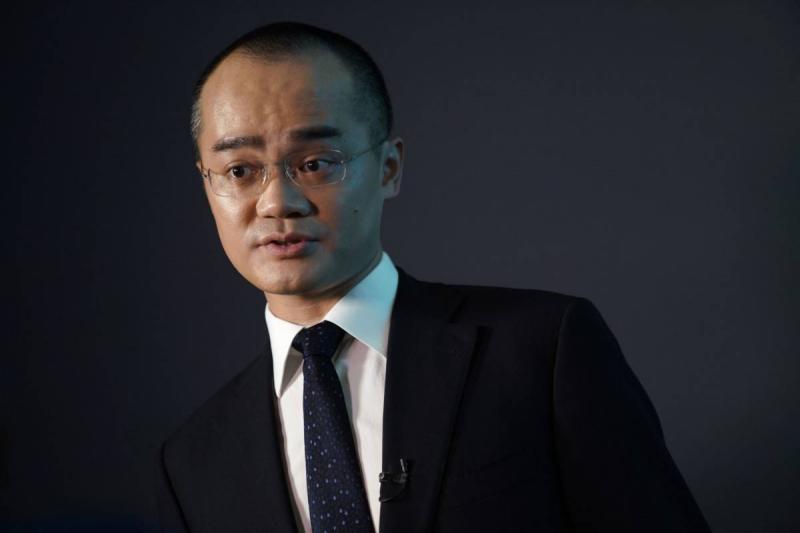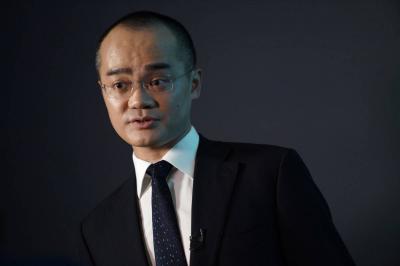Under the title "A Thousand-Year-Old Poem Costs a Chinese Tech Tycoon $2.5 Billion," Bloomberg East reported on Wang Xing, CEO of Meituan, who stirred controversy by posting just 28 Chinese characters on an obscure social media platform. Wang Xing lost nearly $2.5 billion of his wealth over two days after sharing lines from a thousand-year-old poem that discussed the misdeeds of the first Chinese emperor in trying to suppress opposition. Later, Wang deleted his post and clarified that he intended to critique the shortsightedness of his industry, attempting to assert that there was no implicit criticism of the government. However, the damage was done, as Meituan lost $26 billion over two days, being the biggest loser in a broader tech decline, before recovering by 4.3% the following Wednesday.
The extreme reaction to Wang's post highlights the fragility of the markets after months of Beijing's crackdown on the pillars of the internet empire owned by Jack Ma, namely Alibaba Group Holding Ltd and Ant Group Co. Although Wang's remarks were more concise, they reminded some investors of Ma's ill-timed comments at a public forum that derailed Ant's $35 billion initial public offering and ignited a widespread campaign to rein in powerful corporate leaders and critics.
The majority of the debate stemming from online speculation revolves around the fate of Meituan and Wang, especially since regulators have just chosen the gig economy giant as their second major subject of investigation after fining Alibaba $2.8 billion for alleged monopolistic behavior. The poem triggers memories but does not provide definitive evidence of Wang’s intentions or thoughts. One line states, "Before the ashes cool, an eastern mountain rebellion ignited." However, the timing could incite anger among officials who are already studying multiple issues ranging from labor compensation to competitive tactics.
Brock Silvers, Chief Investment Officer at Kaiyuan Capital in Hong Kong, stated, "He didn’t win over regulators with his post, and the problem is that some critical aspects of the business environment have turned against him now, which could have a long-term impact even after the poem issue is forgotten."
Regardless of Wang’s motivations, regulators are scrutinizing Meituan, given that it is one of a handful of entrepreneurs considered successors to industry leaders like Ma, and it competes fiercely with them as well. The 42-year-old businessman raised a record $10 billion just last month to develop promising technologies to lead a massive expansion in online grocery stores.
### Beijing's Control
Wang still owns approximately 11% of Meituan, valued at around $18.4 billion as of last Tuesday, according to Bloomberg's billionaires index, meaning his wealth has shrunk by about $15 billion from its peak in February until May 11. Additionally, over the past six months, China’s antitrust watchdog has issued numerous laws granting it more oversight of the internet sector, with caution regarding the influence of companies like Alibaba and Meituan on many aspects of Chinese life.
Beijing is reportedly exploring ways to tighten control over personal data and valuable media, and among the internet giants, Meituan—being the world's largest food delivery service—has faced the most public scrutiny during the pandemic. Even before Wang's post, state media regularly published reports describing the plight of Meituan delivery drivers, fueling online outrage, especially following the deaths of several delivery personnel rushing to meet deadlines, which raised accusations of exploitation and debate over the treatment of gig economy workers, similar to events in the United States years ago.
### Rising Criticisms
In one of the latest efforts, Beijing television aired a documentary featuring a social security official working as a delivery driver, claiming he earned 41 yuan ($6) for 12 hours of work. He later told the Communist Party's Beijing News that his experience highlighted the unreasonable demands placed on millions of delivery workers nationwide who helped feed China during the pandemic. Other media focused on the industry’s preoccupation with increasing grocery deliveries rather than fostering innovation.
In response, Meituan pledged to improve welfare and benefits and to adjust algorithms to allow more time for deliveries. However, last Tuesday, Bernstein cut the company’s target price by 21%, arguing that rising wage costs and covering its army of workers would exacerbate a more stringent regulatory environment and undermine the bottom line.
The criticisms have not stopped at Meituan’s core businesses; its community commerce arm was among a handful of operators penalized in March for excessive subsidies, alongside units from Pinduoduo Inc and Didi Chuxing, a giant in online ride-sharing. In January, it closed its crowdsourced health insurance service after regulators tightened scrutiny on online insurance, and even the Shanghai Consumers Council criticized Meituan this week for its flawed refund system and misleading content on its mobile app.
### A Costly Slip
What happens next remains a hot topic of debate; regarding Ma, after a period of forced dormancy, he is re-emerging in public, while many of his peers have been cautious in recent months about maintaining low profiles given the specifically volatile environment. This makes Wang's apparent slip more perplexing. It's clear that the entrepreneur chose one of his early creations and later failures as his platform, which is “Fanfou,” similar to Twitter, whose services were suspended in 2009 for failing to keep up with government censorship demands. For this reason, Wang stated in 2019 that he decided to "do something less controversial."
Nevertheless, the platform remains open to original users like Wang, who has documented his reflections for years on everything from Western literature to random trivia and, of course, Chinese poetry. Gary Dugan, CEO of the Global CIO Office asset management firm in Singapore, remarked, "Whether intended or not, any implicit criticism of the regulation of their industries is not going to be helpful for them or their shareholders; any investor in individual stocks in China right now hopes they will scale back their social media philosophy around the future and just focus on running their businesses."




